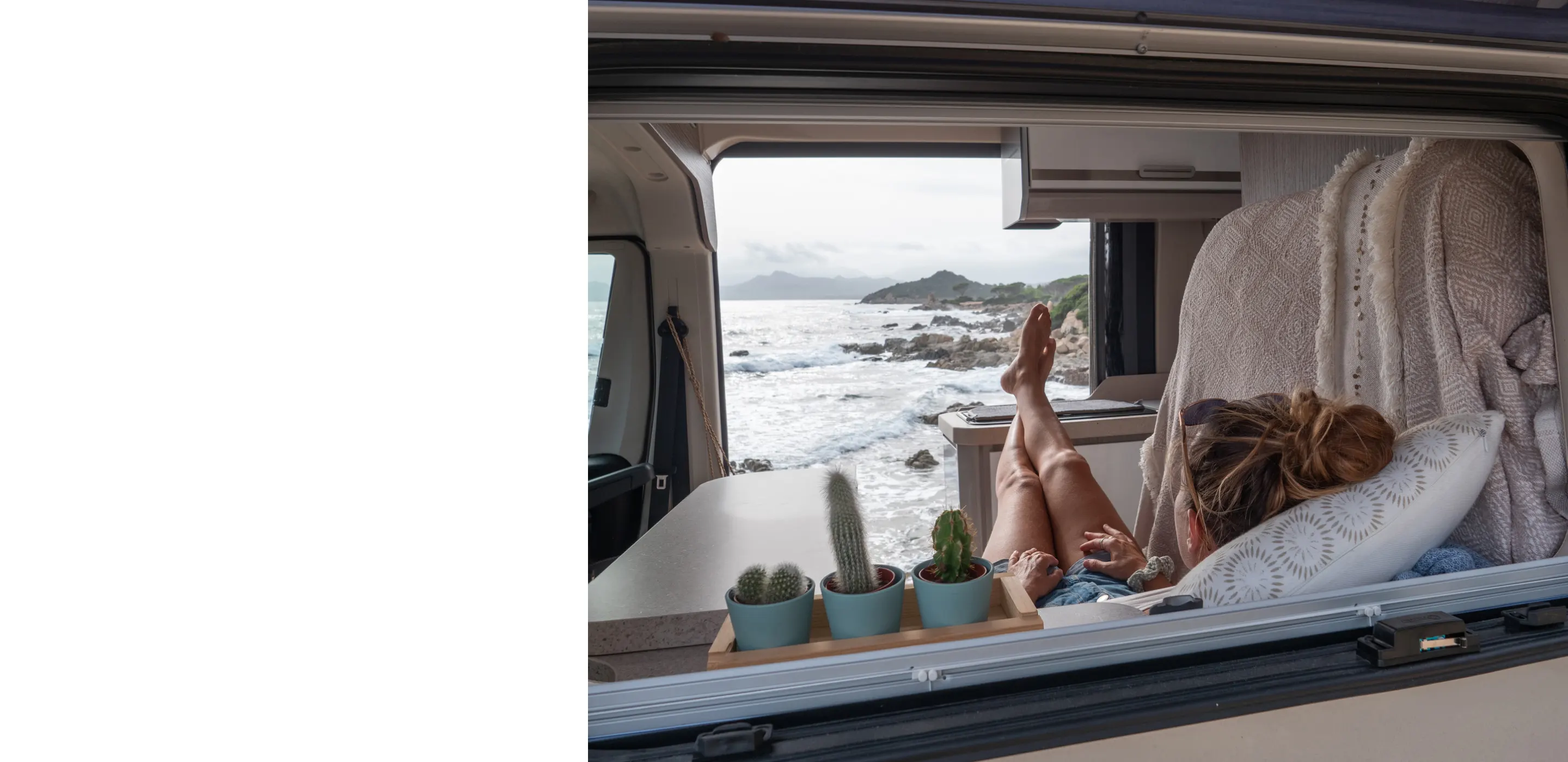Key takeaways:
- While it’s a good idea to have it in any situation, insurance is usually required for motorized RVs, those that have outstanding loans, rental units, and those that serve as your full-time home.
- There are a wide variety of coverage options, from liability, comprehensive, and collision to emergency road service and more.
- A good insurance broker will help you find the right mix of coverage and price for your RV insurance needs.
If you’re one of the more than 11 million U.S. households who now own an RV, make sure the time you spend with it is truly relaxing. Give yourself one less thing to worry about by having the right type of insurance for your ‘home on wheels.’
Top 5 questions and answers about RV insurance
RV insurance can be confusing since laws vary by state and because requirements and coverages depend on the type of RV you have. But in general, here’s how it works:
1. Is RV insurance required?
Insurance is usually required when…
- Your RV is motorized—that is, you can drive it down the road. In fact, all states require the same amount of liability coverage for a motorized RV as they require for a car or truck.
- You purchased the RV using a loan; lenders often require that you have insurance to protect their interests, regardless of whether it’s motorized.
- You rent out the vehicle when you’re not using it.
- You live full-time in the RV as your home.
Insurance is typically optional when…
- Your RV is towable but not drivable (such as a fifth wheel, a pop-up or a travel trailer). If something happens while you’re towing your RV, liability coverage is provided by the insurance on the vehicle you are using to tow, but damage to the RV itself would not be covered.
- You own a towable RV with no financing.
However, even if your state doesn’t require RV insurance, it’s a smart move to protect your investment.
2. What kind of insurance do you need for an RV?
Like auto insurance, RV insurance is designed to protect you if you are involved in an accident. It also protects your assets if you are found liable (responsible) for causing the accident.
RV coverage options include:
- Liability (for Bodily Injury and Property Damage) pays when you cause an accident that injures other people or property. Liability coverage is required if you have a motorized RV that can be driven.
- Collision and Comprehensive covers damage to your RV. If your RV is in long-term storage and not being used (if you’re a member of the military on deployment, etc.), you may want to consider skipping the collision and just getting comprehensive coverage for asset protection.
- Uninsured/Underinsured Motorist pays for Bodily Injury and Property Damage if the other driver is not insured or doesn’t have enough coverage.
- Medical Payments and Personal Injury pays medical expenses for you or others in your RV.
- Roadside Assistance covers towing, battery failure, tire repairs, and more.
- Total Loss Replacement pays for a new, similarly equipped RV if yours is damaged and determined to be a total loss within the first few years of owning it.
- Rental Vehicle Coverage covers costs if your RV breaks down and you need to rent another vehicle.
- Emergency Expenses pays for hotel and other expenses if you’re left stranded.
- Vacation Liability provides bodily injury and property damage coverage if someone is injured while your RV is parked at a designated campsite.
- Disappearing Deductible reduces your deductible each year you don’t have a claim.
Liability coverage for a non-motorized RV is provided by the insurance on the vehicle you use to drive and tow the RV. However, comprehensive and collision coverage is not, and must be purchased separately. For example, if a tree falls on your RV while it’s parked in your yard, the damage will be covered only if you’ve purchased comprehensive coverage.
Many people have begun renting their RV out when they’re not using it. Some but not all RV sharing platforms offer insurance protection for owners when your unit is rented, but if you rent it privately, you must provide coverage.
If you have special equipment like a satellite dish, solar panels, or sports gear attached to your RV, consider a policy with additional coverage.
3. What does RV insurance typically cost?
While coverage and costs vary by state, many people are surprised to find how affordable RV insurance can be. When calculating your RV insurance rates, an insurance underwriter will consider things like your age and driving record; coverage options; type, size, and age of the RV; how often and where you use it and even where you store it.
Discounts can be found by bundling your RV insurance with other policies such as your auto or homeowners policies. By purchasing more than one type of insurance from the same carrier, you can often lower your premiums. Some insurers even offer discounts if you store the RV inside or complete an RV safety course.
4. Who has the best RV insurance?
While venturing out to buy RV insurance on your own may seem like a good idea, you will find that an insurance broker can help you find the best coverage based on your needs and budget. When choosing a broker, look for an experienced agent who is licensed to sell different types of insurance, including RV insurance, and is familiar with the unique options required. And remember, an insurance broker works for you, not for the insurance company.
5. Is RV insurance worth it?
Your investment in an RV can be significant, but that’s not the only consideration. When deciding whether to get insurance coverage for your RV, consider these two things:
- Insurance is designed to protect you and your assets, which is especially important if you are found responsible for causing an accident.
- Insurance also pays for damages to your RV caused by collision, theft or fire, hail, and more. Some premium insurance plans will even pay for repairs if rodents cause damage to the interior while the RV is in storage.
A good insurance broker will help you find the right mix of coverage and price for your situation.






